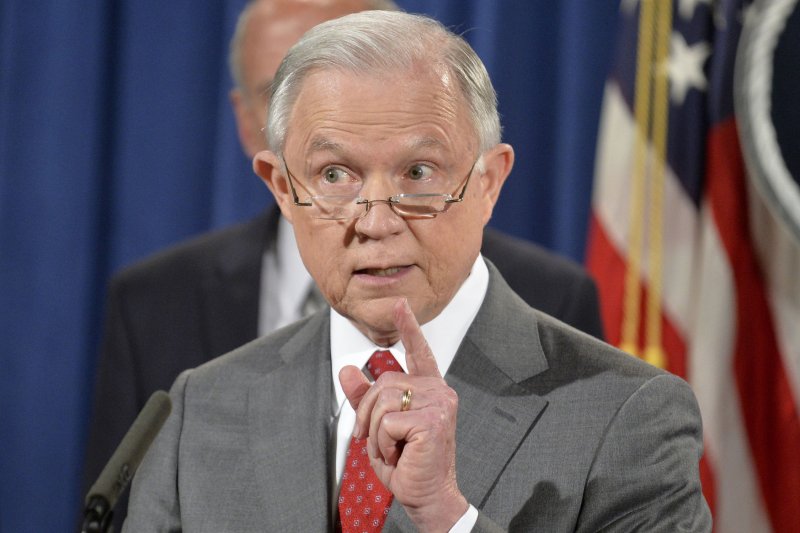Aug. 4 (UPI) -- U.S. Attorney General Jeff Sessions said Friday the Department of Justice is "reviewing" media subpoena policies for reporters who cite anonymous sources in leaking classified information.
Sessions said at a news conference that federal law enforcement agencies will ramp up efforts to stem the tide of information leaks emanating from within the Trump administration, a fact that President Donald Trump has vented about publicly.















